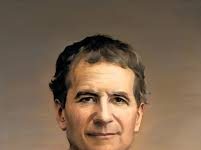The ironically-named Sam Bankman-Fried has certainly taken it to the bank, freed from the bonds of justice that should have him locked up. His cryptocurrency company – FTX – has allegedly bamboozled investors out of billions, and Mr. Sam has walked away with a good chunk of that. This seems a replay, on an even larger scale, of the Ponzi’s scheme in the 1920’s and Bernie Madoff’s in the early 2000’s, and all sorts of scams in-between. How witting this current one was will hopefully be revealed as the company itself is mined. The playbook is predictable: Investors invest large amounts, in what they think are real things of value, but in reality it’s a house of cards, with money flowing in and out. A few at the top getting real rich – Bankman was at one point worth 26 billion, give or take – the rest getting left holding the empty bag, with nothing to show for their thousands or millions. For some, it’s their life savings; for others, like billionaire Kevin O’Leary, it’s an irritating embarrassment.
There are lessons to learn:
In any functioning economy, money is a symbol of real wealth, things that are actually worth something, whether land, food, chattel, technology, art. Bitcoin, as it turns out, seems to symbolize nothing but more bitcoin. Get rich schemes are invariably too good to be true for the simple fact that they usually are just that.
One of the primary duties of the state – and a serious one at that – is to ensure a stable currency, so that people trust the vital connection between money and the real things in which they invest or buy. If this link be distorted or broken, the fabric of society comes apart, chaos ensues, and very bad things happen. That is why counterfeiting was a capital offence in prior ages.
Our government has not only failed in this duty, but has exacerbated the shakiness of this link, and the fakeness of money. By printing too much of it – what is euphemestically called ‘fiat money’, as in, ‘just let it be’ – they have devalued all of it. Inflation is not that things get more expensive, but that money is worth ever-less. One could argue that government itself is one giant Ponzi scheme, shoveling out money for nothing. Those at the top and connected to them get rich, the rest of the hoi polloi are left bereft, until the whole economic house falls down.
There may well be deeper issues in this FTX scandal, as much of the money was allegedly funnelled into the coffers of the Democrats, and one can’t help but wonder about their connection, besides that Bankman was a big fan and perhaps an even bigger donor.
This may also portend the end of bitcoin, the last refuge of those who want to hide their wealth from the grasping hands of the state. One sympathizes, as Trudeau and Freeland here in Canada last winter froze people’s bank accounts during the Freedom Rally, just because they gave a few bucks to the cause. There is now talk of making any cryptocurrency illegal, but they scarcely have to, as who’s going to trust the Bankmans and FTX’s of the world now? And if they do make cash also illegal – ‘phased out’ as they will put it – then we’re all on digital currency, which is completely under the control of the state and its whimsies, decrees and dictates. Sign here, kowtow there, or you’re bankrupt, and can neither buy, nor sell.
The word ‘economy’ is Greek (oikonomia) for ‘household’, which evokes the ultimate purpose of the economy, for families to thrive, which is done in a virtuous and stable environment, devoid of greed, usury and rapaciousness. All I can say is that if God wants families to continue, He will provide a way. If not, well, there are many mansions in heaven. We shouldn’t ever lose hope, at least of the supernatural sort.












